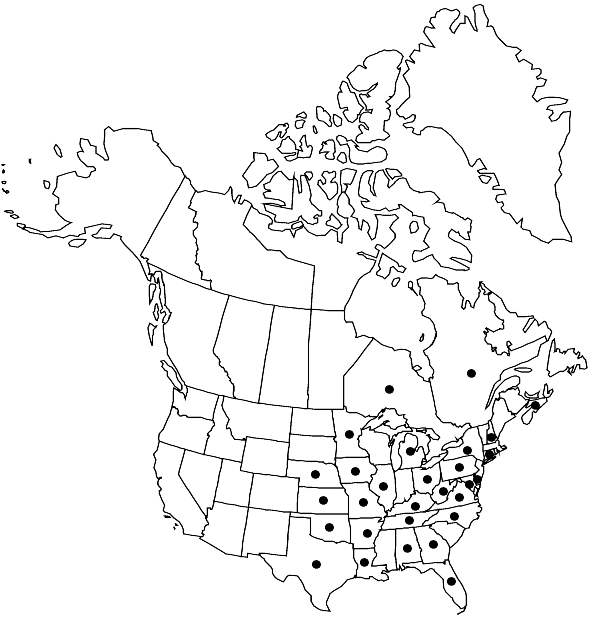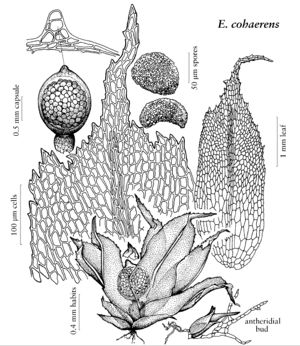Ephemerum cohaerens
Flora 20: 285. 1837,.
Plants to 2.5 mm, gregarious in thin, usually persistent protone-mata. Leaves broadly lanceolate to oblong-lanceolate, sometimes amplectant, usually abruptly narrowed from distinct, asymmetric shoulders, 1–2.2 × 0.17–0.5 mm; margins serrate, commonly spinose at the shoulders, with one shoulder more deeply incised and less regularly spinose or dentate than the other; apex subulate, sharply pointed, and sometimes recurved; costa occasionally absent at the base, strong distally, percurrent, excurrent, or ending near the apex, toothed abaxially; areolation lax in proximal third, more compact distally; median laminal cells usually in diagonal rows upward from costa to margin, smooth; distal laminal cells smooth. Capsule with columella occasionally persisting to maturity; stomates scattered throughout. Spores spherical or reniform, 47–95 × 40–62 µm.
Phenology: Capsules mature year around.
Habitat: Moist or drying disturbed soil, occasionally in bogs
Elevation: low to moderate elevations (0-500 m)
Distribution

N.S., Ont., Que., Ala., Ark., Conn., Del., Fla., Ga., Ill., Iowa, Kans., Ky., La., Md., Mich., Minn., Mo., Nebr., N.H., N.Y., N.C., Ohio, Okla., Pa., Tenn., Tex., Va., W.Va., Europe, Asia (China, Japan).
Discussion
The laminal cells at mid-leaf are arranged typically, but not invariably, in diagonal rows from the margin near the shoulders proximally toward the costa. Occasionally, one finds plants with the typical leaf shape, but in which the laminal cells run almost parallel to the costa.
Selected References
None.
